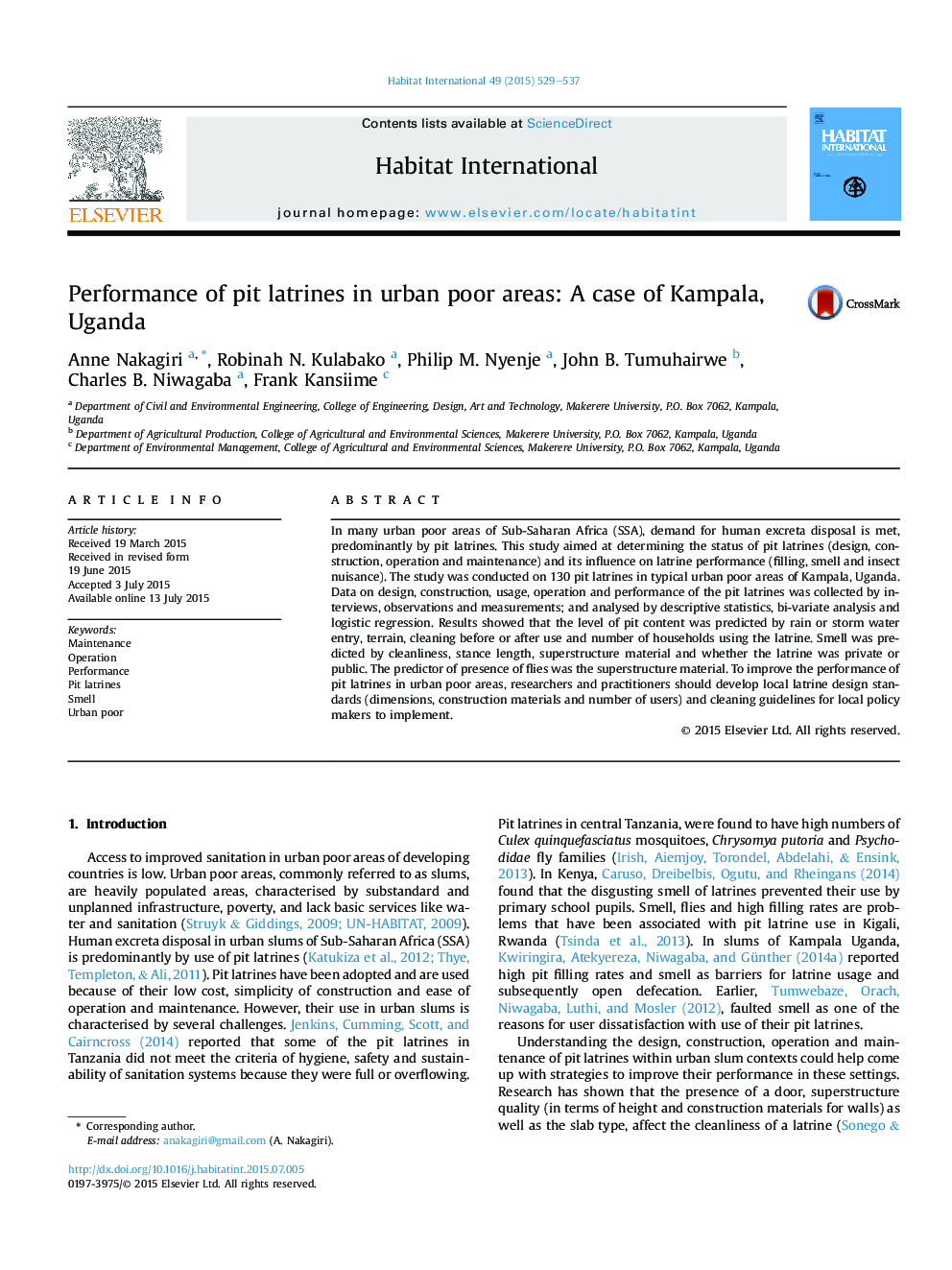| کد مقاله | کد نشریه | سال انتشار | مقاله انگلیسی | نسخه تمام متن |
|---|---|---|---|---|
| 7456342 | 1484494 | 2015 | 9 صفحه PDF | دانلود رایگان |
عنوان انگلیسی مقاله ISI
Performance of pit latrines in urban poor areas: A case of Kampala, Uganda
ترجمه فارسی عنوان
عملکرد نرده های گودال در مناطق فقیر شهری: یک مورد کمپالا، اوگاندا
دانلود مقاله + سفارش ترجمه
دانلود مقاله ISI انگلیسی
رایگان برای ایرانیان
کلمات کلیدی
نگهداری، عمل، کارایی، توالتهای گودال، بو، فقیر شهری،
موضوعات مرتبط
علوم انسانی و اجتماعی
علوم اجتماعی
توسعه
چکیده انگلیسی
In many urban poor areas of Sub-Saharan Africa (SSA), demand for human excreta disposal is met, predominantly by pit latrines. This study aimed at determining the status of pit latrines (design, construction, operation and maintenance) and its influence on latrine performance (filling, smell and insect nuisance). The study was conducted on 130 pit latrines in typical urban poor areas of Kampala, Uganda. Data on design, construction, usage, operation and performance of the pit latrines was collected by interviews, observations and measurements; and analysed by descriptive statistics, bi-variate analysis and logistic regression. Results showed that the level of pit content was predicted by rain or storm water entry, terrain, cleaning before or after use and number of households using the latrine. Smell was predicted by cleanliness, stance length, superstructure material and whether the latrine was private or public. The predictor of presence of flies was the superstructure material. To improve the performance of pit latrines in urban poor areas, researchers and practitioners should develop local latrine design standards (dimensions, construction materials and number of users) and cleaning guidelines for local policy makers to implement.
ناشر
Database: Elsevier - ScienceDirect (ساینس دایرکت)
Journal: Habitat International - Volume 49, October 2015, Pages 529-537
Journal: Habitat International - Volume 49, October 2015, Pages 529-537
نویسندگان
Anne Nakagiri, Robinah N. Kulabako, Philip M. Nyenje, John B. Tumuhairwe, Charles B. Niwagaba, Frank Kansiime,
